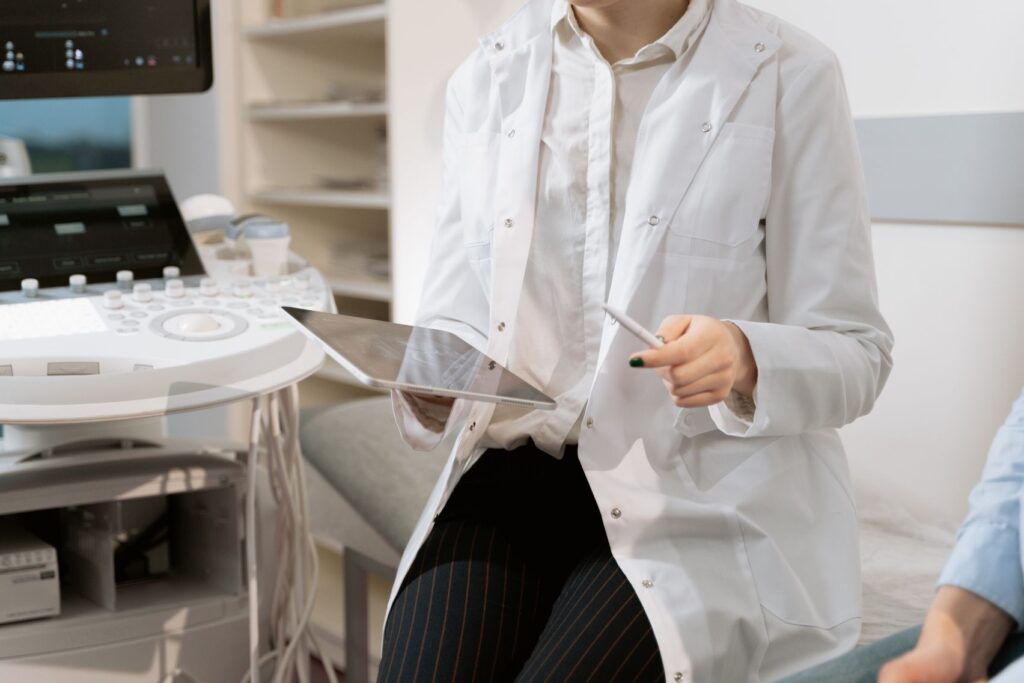Are you experiencing unusual fatigue, sensitivity to certain smells, or even a missed period? Could you be pregnant? These early signs can be puzzling and, sometimes, quite frightening.
Recognizing the symptoms and understanding their onset can make this journey less daunting. This article offers a comprehensive guide to when pregnancy symptoms start and how they progress.
Table of Contents
Understanding Pregnancy: A Quick Overview

Conception is a beautiful process, the beginning of a life. After fertilization, the body adapts to the embryo, leading to hormonal changes that trigger pregnancy symptoms. However, every woman’s body is unique, and symptoms can manifest at different times and intensities.
First Signs of Pregnancy: The Initial Two Weeks
Often, the first sign of pregnancy is a missed period. It’s the classic alarm bell that triggers a flurry of speculation. Other early signs can include fatigue and slight bleeding or cramping as the embryo implants into the uterus.
It’s easy to dismiss these symptoms as pre-menstrual changes, but the persistence of these signs could hint at pregnancy. To back this up, the American Pregnancy Association states that early pregnancy symptoms can appear as soon as one week after conception. However, it’s important to note that these symptoms are indicators, not pregnancy confirmations.
Ready to uncover the secrets of a successful pregnancy journey? Our comprehensive Pregnancy Miracle Review holds answers to all your queries and more. Embark on your miraculous journey today.
The Pregnancy Journey: Weeks 3 to 8
As you move further along in your pregnancy, more noticeable symptoms may start to appear. Tender and swollen breasts, increased urination, and morning sickness are common symptoms during this period.
According to a study published in the American Journal of Obstetrics and Gynecology, about 90% of women experience nausea or vomiting by the 8th week of pregnancy. Despite its name, morning sickness can strike at any time of day.
Read: 5 Tips To Stay Comfortable During Pregnancy
The advent of the Second Trimester: Weeks 9 Onwards
Entering the second trimester, you may notice your belly starting to grow and weight gain becoming more apparent. As your hormone levels continue to rise, emotional changes such as mood swings and anxiety can also occur.
Stories from countless women, like Rebecca, a mother of two, echo these experiences. She recalls her rapid mood changes and the start of a noticeable bump only after the 9th week of her pregnancy. It’s important to note that everyone’s journey is unique, and these experiences might not resonate with every woman.
Medical Tests to Confirm Pregnancy
While symptoms can hint at the possibility of pregnancy, it is essential to confirm it with medical tests. Home pregnancy tests, which measure the presence of human chorionic gonadotropin (hCG), can be a reliable first step. However, a blood test at a clinic can provide a definitive confirmation.
When to Consult a Doctor

If you observe consistent signs of pregnancy, it’s crucial to consult a healthcare professional early. Regular prenatal check-ups can ensure both the mother’s and baby’s health. Certain symptoms, such as severe pain, heavy bleeding, or extreme dizziness, are red flags that require immediate medical attention.
Understanding and Navigating Pregnancy Symptoms: Tips
Coping with the varied symptoms of pregnancy can be challenging, but understanding them can ease the journey. Stay hydrated to combat fatigue, eat smaller, frequent meals to help with nausea, and get plenty of rest.
However, listening to your body and seeking professional help when needed is essential. Remember, every pregnancy is unique, and there’s no ‘right’ way to experience it.
Conclusion
Pregnancy is an exceptional journey with its blend of joy and challenges. Understanding when and how pregnancy symptoms start can prepare you for what’s ahead.
Read: Prenatal & Postnatal Care Tips
However, remember that these symptoms are merely guides and a healthcare professional’s advice is invaluable in this significant life event.
Use this article as a general guide, and consult your healthcare provider to understand your pregnancy better. Let’s honor and celebrate the uniqueness of each pregnancy journey!
Discover a new approach to your pregnancy journey. Dive into our insightful Pregnancy Approach Review and unlock effective strategies for a smoother and healthier pregnancy. Don’t wait!
Frequently Asked Questions
-
What symptoms do you have at 1 week pregnant?
At one week pregnant, symptoms are often subtle but can include mild cramping, spotting, and fatigue, though many may not notice any changes.
-
How soon will a pregnancy test read positive?
A pregnancy test can typically read positive as soon as one day after a missed period, usually around two weeks after conception.
-
How soon after conception can you feel sick?
Some women can start feeling sick, experiencing symptoms like nausea or vomiting, as early as a week to two weeks after conception.
-
What are the symptoms of implantation?
Implantation symptoms include light spotting or bleeding, cramping, increased cervical mucus, and a slight dip in basal body temperature.
-
How I knew I was pregnant before my missed period?
Early signs before a missed period could include breast tenderness, increased urination, fatigue, nausea, and increased sensitivity to smell.
-
How does your lower stomach feel in early pregnancy?
Early in pregnancy, your lower stomach might feel bloated or crampy, similar to the feeling before your period starts.
-
How do pregnancy discharge look like?
Pregnancy discharge, known as leukorrhea, usually looks like thin, milky white, and mildly smelling discharge, which is generally normal.













